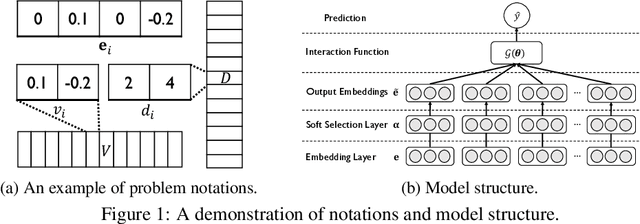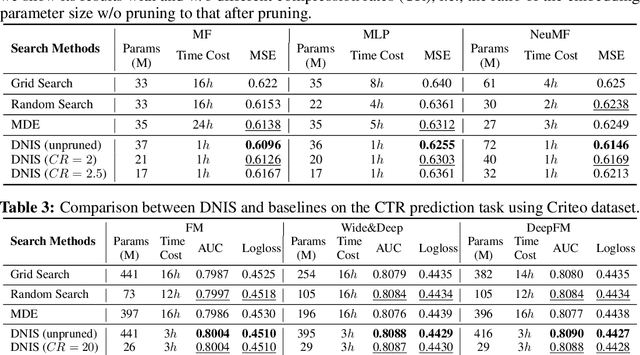Differentiable Neural Input Search for Recommender Systems
Paper and Code
Jun 08, 2020



Latent factor models are the driving forces of the state-of-the-art recommender systems, with an important insight of vectorizing raw input features into dense embeddings. The dimensions of different feature embeddings are often set to a uniform value manually or through grid search, which may yield suboptimal model performance. Existing work applied heuristic methods or reinforcement learning to search for varying embedding dimensions. However, the embedding dimension per feature is rigidly chosen from a restricted set of candidates due to the scalability issue involved in the optimization process over a large search space. In this paper, we propose a differentiable neural input search algorithm towards learning more flexible dimensions of feature embeddings, namely a mixed dimension scheme, leading to better recommendation performance and lower memory cost. Our method can be seamlessly incorporated with various existing architectures of latent factor models for recommendation. We conduct experiments with 6 state-of-the-art model architectures on two typical recommendation tasks: Collaborative Filtering (CF) and Click-Through-Rate (CTR) prediction. The results demonstrate that our method achieves the best recommendation performance compared with 3 neural input search approaches over all the model architectures, and can reduce the number of embedding parameters by 2x and 20x on CF and CTR prediction, respectively.
 Add to Chrome
Add to Chrome Add to Firefox
Add to Firefox Add to Edge
Add to Edge